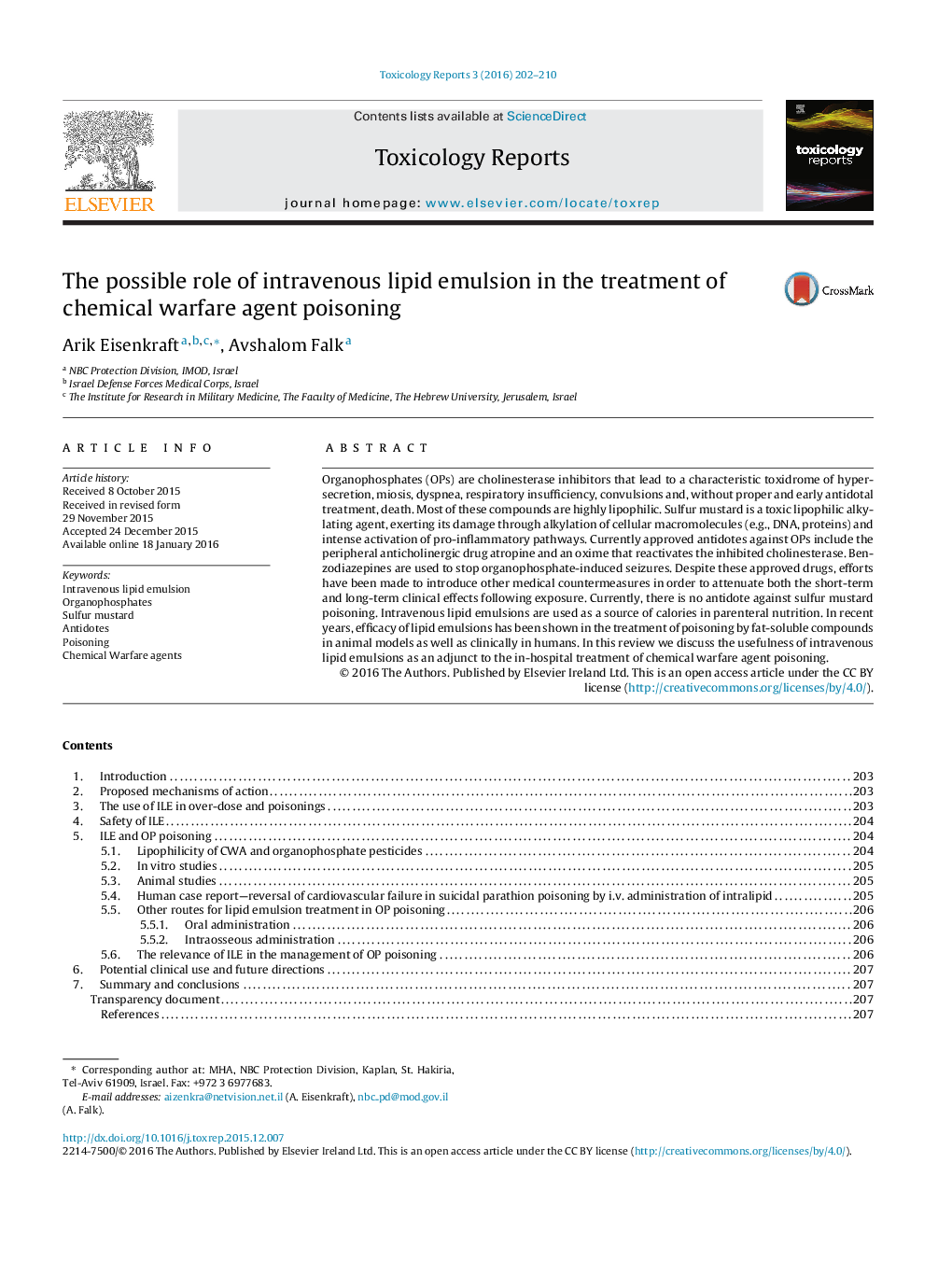| کد مقاله | کد نشریه | سال انتشار | مقاله انگلیسی | نسخه تمام متن |
|---|---|---|---|---|
| 2572123 | 1561191 | 2016 | 9 صفحه PDF | دانلود رایگان |
Organophosphates (OPs) are cholinesterase inhibitors that lead to a characteristic toxidrome of hypersecretion, miosis, dyspnea, respiratory insufficiency, convulsions and, without proper and early antidotal treatment, death. Most of these compounds are highly lipophilic. Sulfur mustard is a toxic lipophilic alkylating agent, exerting its damage through alkylation of cellular macromolecules (e.g., DNA, proteins) and intense activation of pro-inflammatory pathways. Currently approved antidotes against OPs include the peripheral anticholinergic drug atropine and an oxime that reactivates the inhibited cholinesterase. Benzodiazepines are used to stop organophosphate-induced seizures. Despite these approved drugs, efforts have been made to introduce other medical countermeasures in order to attenuate both the short-term and long-term clinical effects following exposure. Currently, there is no antidote against sulfur mustard poisoning. Intravenous lipid emulsions are used as a source of calories in parenteral nutrition. In recent years, efficacy of lipid emulsions has been shown in the treatment of poisoning by fat-soluble compounds in animal models as well as clinically in humans. In this review we discuss the usefulness of intravenous lipid emulsions as an adjunct to the in-hospital treatment of chemical warfare agent poisoning.
Journal: Toxicology Reports - Volume 3, 2016, Pages 202–210
